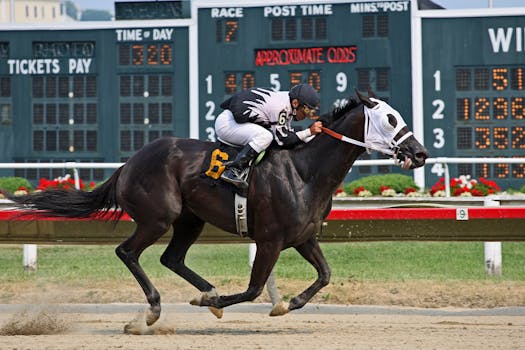Understanding the Concept of Overround in Betting
In the world of betting, whether it's on sports, horse racing, or any competitive event, understanding the concept of the overround is crucial for both novice and experienced bettors. The overround, often referred to as the "vig" or the bookmaker's margin, is essentially the mechanism through which bookmakers ensure they make a profit regardless of the outcome of an event. By delving into this concept, bettors can gain insights into the fairness of the odds offered and potentially increase their chances of making profitable bets.
What is Overround?
The overround is the sum total of the implied probabilities for all possible outcomes of an event, as set by the bookmaker, exceeding 100%. This extra percentage represents the bookmaker's profit margin. In a perfectly fair market, the probabilities would add up to exactly 100%, meaning there is no bias or margin added. However, bookmakers need to secure their earnings, which is why the overround exists.
Calculating the Overround
To calculate the overround, one must first convert the given odds into implied probabilities. This can be done by taking the reciprocal of the odds (in decimal format) and multiplying by 100. For example, if a bookmaker offers odds of 2.00 on a coin toss (Heads or Tails), the implied probability of each outcome is 50%. If the implied probabilities add up to more than 100%, the difference is the overround.
Practical Example: Consider a football match with three possible outcomes - Team A wins, Team B wins, and a draw. If a bookmaker offers the following odds:
- Team A wins: 2.50 (40% implied probability)
- Team B wins: 3.00 (33.33% implied probability)
- Draw: 3.00 (33.33% implied probability)
- Advantages: Simplicity and consistency in odds across different markets.
- Disadvantages: Sometimes less competitive odds, potentially leading to lower returns for bettors.
- Advantages: More competitive odds in popular markets; can attract a larger volume of bets.
- Disadvantages: Can be confusing as the margin changes depending on the market's popularity and the volume of bets.
- Advantages: Best possible odds for the bettor, maximizing potential returns.
- Disadvantages: Usually limited to certain events and may come with other restrictions such as bet limits.
The total implied probability here is 106.66%, indicating an overround of 6.66%.
Approaches to Overround
Fixed Overround
Most traditional bookmakers apply a fixed overround across all markets. This approach simplifies the pricing process but can sometimes result in less competitive odds compared to bookmakers who adjust their margins based on specific events or markets.
Sliding Scale Overround
Some bookmakers use a sliding scale overround, which varies depending on the market or the volume of bets placed on an event. This approach allows for more competitive pricing in popular markets, potentially attracting more bettors.
No Overround Special Offers
Occasionally, bookmakers may offer special promotions with "no overround" or "zero margin" bets, typically for high-profile events. These offers mean that the bookmaker provides odds with a total implied probability of exactly 100%, offering better value to the bettor.
Advantages and Disadvantages
Fixed Overround:
Sliding Scale Overround:
No Overround Special Offers:
Conclusion
Understanding the concept of overround is essential for anyone engaged in betting. By recognizing how bookmakers set their odds and manage their profit margins, bettors can make more informed decisions. When evaluating odds, consider the type of overround strategy being applied and how it might affect the potential return on your bets. Whether you are betting for fun or as a more serious investment, always aim to find the best value for your bets.
As a recommendation, bettors should shop around to find bookmakers who offer the most favorable overround percentages, especially in markets or events they are particularly interested in. This approach can enhance the chances of making profitable returns on your betting endeavors.

.png)





